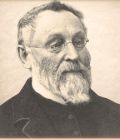COMMON NAMES:
BUG AGARIC; FLY AGARIC; TOAD STOOL.
Symptoms
It acts as an intoxicant to the brain, producing more vertigo and delirium than alcohol, followed by profound sopor with lowered reflexes.
GREAT DEBILITY AND HEAVINESS IN THE LIMBS.
Nervous prostration, after sexual debauchery (A.).
Boring or dull pains.
Every motion, every turn of body, causes pain in the spine. Single vertebra sensitive to touch (A.).
Great sensitiveness of the body to pressure and cold air.
SPINAL IRRITATION, DUE TO SEXUAL EXCESSES (Kali-P.).
Seminal emissions, without dreams (Anacardium, Camph. Conium, Dioscorea, Phosphorus). (K.).
Sensation as if ice touched or ice-cold needles were piercing the skin; as from hot needles (A.).
Reeling and staggering to and fro, when walking in open air (G.).
ITCHING, WITH BURNING AND REDNESS, AS IF FROST-BITTEN, OF THE NOSE, EARS, FINGERS AND TOES.
Chilblains, that itch and burn intolerably (A.).
Sensation of soreness in the nose and mouth.
Epistaxis of old people (Carbo vegetabilis, Hamamelis, Secale, Sulph-Ac.) (K.).
Fluent coryza (C.).
Nosebleed, when blowing the nose, early in the morning (Ambr., Bryonia) (C.).
Tearing pains in the limbs, which are continuous while at rest, but disappearing on moving about.
Uncertainty in walking; stumbles over everything in the way; feels pain as if beaten, when standing (A.).
Motion of type, with flickering, when reading (R.).
TWITCHING OF THE EYELIDS.
BLEPHAROSPASMUS (F.).
Dim sightedness; everything seems obscured (G.).
Asthenopia, caused by prolonged strain (R.).
Play of upper and lower limbs, from incipient softening of spinal cord (L.)
CLONIC SPASMS (Cuprum, Nux vomica).
Epilepsy, from suppressed eruptions (Causticum, Psorinum, Sulphur). (A.).
Delirium, with constant raving; tries to get out of bed (Belladonna, Hyoscyamus, Stramonium,) in typhoid or typhus (A.).
RAGE, WITH GREAT EFFORTS OF STRENGTH (Belladonna, Cantharis, Stramonium)
Sings, talks, but does not answer (Br.).
Disinclination to work (G.).
THE PATIENT IS EXCESSIVELY FANCIFUL AND FULL OF ECSTASY (Coffea)
Self-willed, stubborn (G.).
Profuse sweat when walking, or from the least exertion (C.).
In old people with indolent circulation, or drunkards, especially for their headaches (N.).
THE SYMPTOMS FREQUENTLY APPEAR DIAGONALLY, AS IN THE RIGHT ARM AND LEFT LEG.
A sudden and violent stitch comes in the sacrum, whilst walking in the open air (G.).
Sense of languor, as if the body were bruised and the joints dislocated (L.).
INVOLUNTARY MOVEMENTS WHILE AWAKE, CEASE DURING SLEEP; CHOREA, FROM SIMPLE MOTIONS AND JERKS OF SINGLE MUSCLES TO DANCING OF WHOLE BODY; TREMBLING OF WHOLE BODY (A.).
Senile tremor (L.).
Tingling and formication in the back (D.).
Convulsive shocks in various muscles (C.).
Spasmodic, convulsive, nervous cough (R.).
Menses: too profuse; with titillation in the genital organs and desire for embrace (Bt.).
FAINTNESS, AFTER COITION (Asafoetida, Digitalis, Natrum phos., Sepia) (K.).
Leucorrhoea, with much itching (Br.).
Post-climacteric prolapsus (A.).
Bearing down pains of a violent character (at once benefited by the action of this medicine).
Complaints, following parturition and coitus (Br.).
AGGRAVATION:
After motion; after eating; after coitus; from mental application; before a thunder-storm; and in cold air.
AMELIORATION:
When moving about slowly.
RELATIONSHIP:
Similar to Actea, Calcarea, Cannabis indica, Hyoscyamus, Kali-P., Lachesis, Nux vomica, Opium and Stramonium, in delirium of alcoholism (delirium tremens), and to Mygal., Tar. and Zincum met., in chorea.

